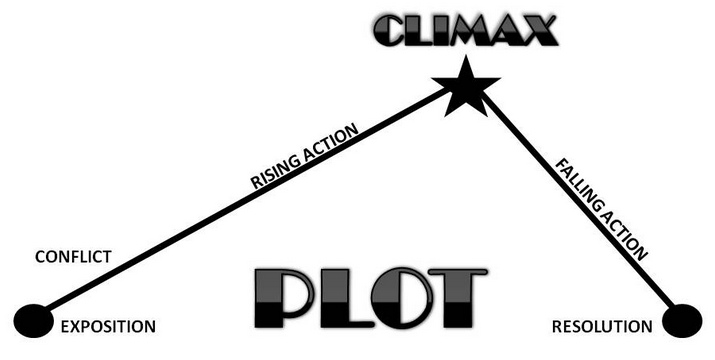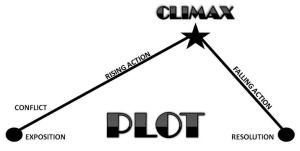Re-Writing the Plot
After reading Friedman’s plot categorisation last week, I’m still unsure which type of plot my short story would fall under. But here are three possibilities:
– 1.1 The action plot, developing around a problem and its resolution
– 2.1 The maturing plot, in which an attractive, naive protagonist achieves maturity
– 2.2 The reform plot, in which an attractive protagonist is responsible for his/her disaster, but later improves
Summary of the plot of my story – jaded female soldier challenges the accepted social order in neuro-scientific dystopia.
New plot as 1.1 – female soldier destroys alien race
New plot as 2.1 – jaded female soldier struggles to assert herself in male-dominated environment, but eventually succeeds in constructing her own social identity and gains respect from her comrades
New plot as 2.2 – reckless female soldier fails to destroy last known member of alien race, but later succeeds
What about Combining Plot Types?
I think it’s totally possible to combine two plot forms, but it would require deft handling. Personally, I enjoy complex, layered narratives. However, if elements of a plot are inconsistent or predictable (think, most Hollywood movies!) then this may leave readers/viewers unsatisfied.
In the ‘7 basic ingredients of good beginnings’, my tutor recommends that there are no empty descriptions. I think that’s true of the entire story – make sure most things makes sense, tie up and are resolved, and you’re on to a commercial winner.
That said, I do also like stories that don’t make sense…I loved the film Holy Motors because it was completely wacko…others hated it…has anyone seen that film?
What Elements make a Good Plot?
To think about individuals for a moment, individual stories, and what makes them appealing, I think that that of the ‘underdog’ embodies a common human satisfaction. The story of someone who had very little, but worked hard, and became successful later in life. I think we can consider this story as universal as, not matter our background or privilege, it is something we wish for ourselves: to do better. For example, a book like the Richard Branson autobiography or a film such as Slumdog Millionaire.
Reflections
Re-writing the plot, combining plot types and considering the key elements of a good plot has taught me that I should not limit myself to my original thoughts, and perhaps should stay open to other plot types. This brainstorming has unearthed some potential ideas for adding layers to the story and depth to the main character. I will certainly consider all of the above as I redraft this week.
References
Norman Friedman’s Forms of the Plot, Journal of General Education, 8 (1955), 241-53.


